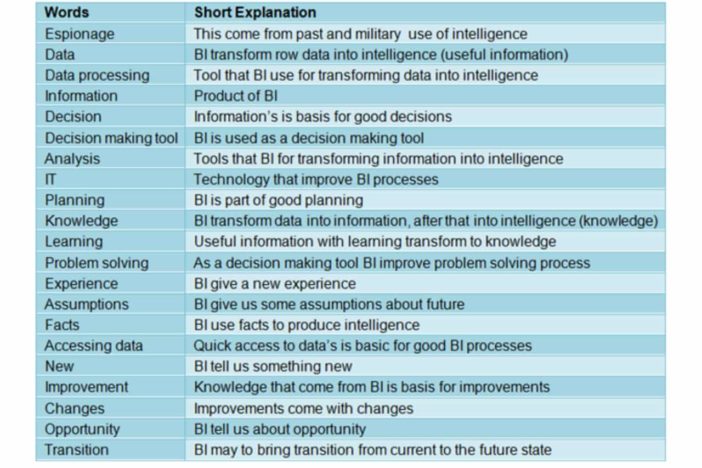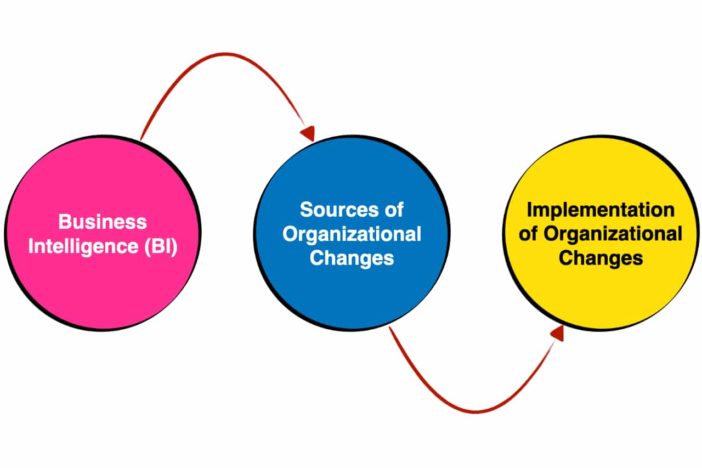Business intelligence (BI) in the last several years has got huge popularity in the business world. Before the term intelligence finds its own place in the business world, governments use this word to make big decisions about wars or about leading the country.
Now we live in the informatics and communication technology age. We are bombarded with information every day. However, information as raw information doesn’t mean knowledge.
How you can transform raw information into knowledge is the key issue in making a better decision?
One possible answer is business intelligence. The potential of BI in the transformation of information into knowledge is enormous. The right information in the right place at the right time is the basis for making the right business decisions.
On the other side, organizational change requires decisions about what to change and when to change. These decisions are based on the sources of organizational changes. These sources may come from different places as from inside of organizations and from outside of organizations. Because of that, we have internal and external sources of organizational change.
In this blog post, I will try to systematize current business intelligence knowledge and find and give some connections between business intelligence and organizational changes.
Definition of Key Terms Related to Business Intelligence
In theory, there are a variety of definitions of business intelligence (BI). Some of the definitions talk about BI as a process, another as a product. Definitions may be in a business context and Information Technology (IT) context. Because of that, this term does not have a precise definition.
From various definitions, a variety of theoretical thinking is available about BI. However, there are definitely some connections with the decision-making process. Furthermore, in theory, business intelligence is defined as an IT tool that transforms data into useful information and distributes that information to those who need it. These definitions are coming from companies that are selling business intelligence tools in some kind of IT application.
Related: Real-life Organizational Decision-Making Examples
It is very significant to have automated processes of BI because it will increase its effectiveness. However, we cannot define business intelligence only as an IT tool because business intelligence as a process can exist without the necessity to have IT.
After studying different definitions of business intelligence, I found several words/ (terminology) that are in some way connected with BI. Table 1 presented these connections.

Relationship Between BI and Organizational Changes
On the other hand, organizational change directly relates to decision-making, especially in the field of the right time to start the change process.
The connection between BI and organizational changes are sources of organizational change. Sources of organizational changes must be discovered and recognized at the right time. So you can take all necessary steps to start the change process.
In the figure below is presented the relationship between BI and organizational changes.

As we can see from the picture, BI is the tool that will tell us when is the right time to start organizational change and where changes must take place. In such a way, you will stay focused on the real needs for organizational changes in the company.





